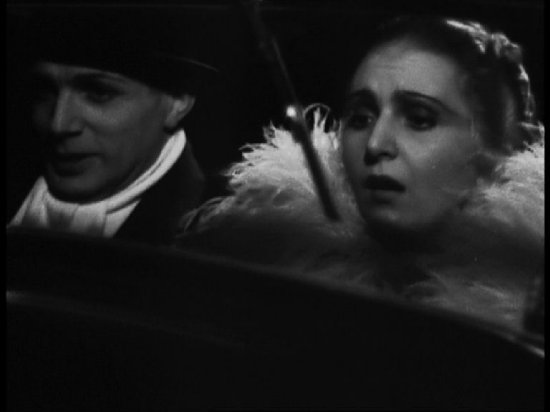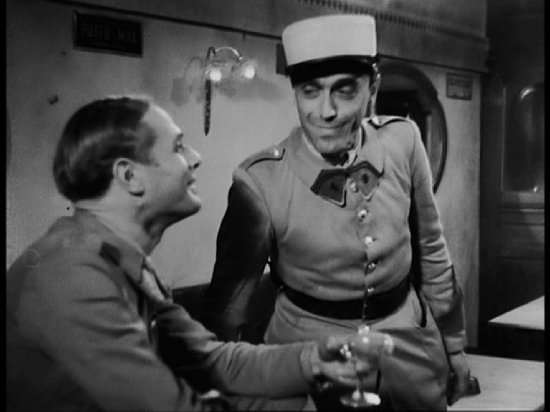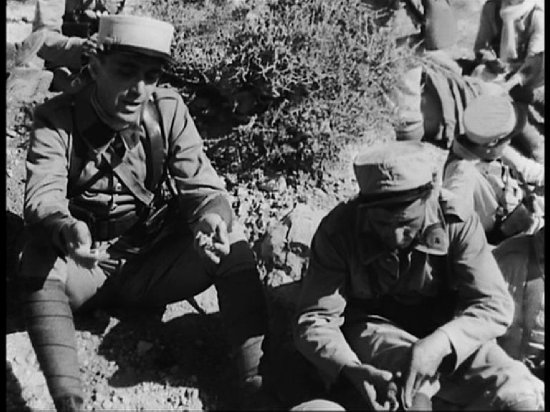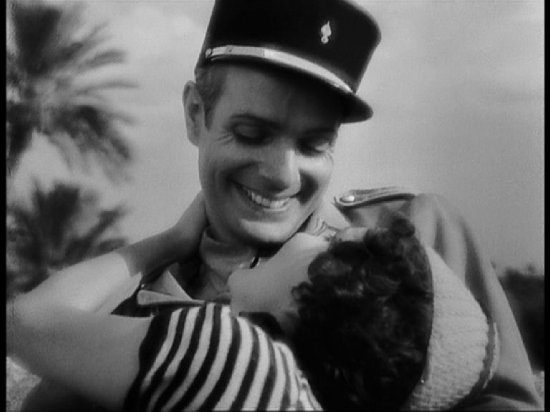Le grand jeu: The Masters of Cinema Series
Long before Alfred Hitchcock made Vertigo, a masterpiece about a man who was utterly obsessed with a woman, there were two French films that dealt with the same subject: Julien Duvivier's Pépé le Moko in 1937 and, predating even that, Jacques Feyder's 1934 romantic drama Le grand jeu.
The film is largely set in Morocco where Parisian playboy Pierre Martel is head over heels in love with Florence. His family, being of the well-to-do variety, fear a scandal and hastily ship him off to pastures new. Enrolling in the French Foreign Legion under the name Pierre Muller, he tries to put Paris and Florence behind him by throwing himself headfirst into a debauched lifestyle of drink, camaraderie and women. It is this last vice that brings a bolt from the blue as he meets a prostitute called Irma who is the doppelgänger of Florence.
Pierre is so convinced that Irma and Florence are the same person that he begins to hatch a plan to get her out of the whorehouse in which she works whilst he waits for his five years to be up so he can leave North Africa with his beloved. Against all this is Pierre's military service and a strange fortune teller who swears by the tarot cards.
This really shouldn't be confused with Robert Siodmak's 1954 remake which starred Jean-Claude Pascal and Gino Lollobrigida, a film which many consider vastly inferior to the original film and far from Siodmak's best work. It says something for the subject matter that it not only spawned a direct remake, but, consciously or unconsciously, two extremely highly regarded films (one considered one of the greatest movies of all time).
With a title like Le grand jeu (The Big Game), one may expect some form of hijinks or bizarre parlour game to take place but this is a game of life, love and happiness and, indeed, a situation with Pierre's sanity at stake so the stakes are very high indeed. By the end, when the cards are dealt, you realise this is a story about much more than love.
When coming across a film like this for the first time (and, indeed, anything by Jacques Feyder) I always wonder whether I am fortunate or unfortunate. On the one hand, I'm able to view the film completely afresh, going in with eyes wide open and am coming across a filmmaker with whose work I'm completely unfamiliar but, on the other hand, it makes me realise how much I have missed out on and how many DVDs I would now like to buy in order to catch up!
Le grand jeu is an extremely well written and directed film which shows that Jacques Feyder was probably one of the great filmmakers of the early sound era and a man of great scope and vision. The film, as proven by the remake and two films with the same subject (Luis Buñuel's That Obscure Object of Desire would also fit into that category), is a timeless one that shows how love can be both uplifting and devastating all at the same time. It is a bizarre human concept that doesn't really exist in the animal kingdom (although some creatures like whales and dolphins do arguably have love as part of their lives). Many of the visual trademarks of this film wouldn't look out of place in a film noir or something like Casablanca, with the smoky interiors and fairly seedy bars where men go to drink away their troubles.
The end result is a thoroughly engaging and extremely involving film that is beautifully made and extremely well acted by just about everyone, especially Pierre Richard-Willlm as the world-weary Pierre he thinks that he has found the answer to his problems in a Moroccan bar, and Marie Bell, who plays the dual role of Florence and Irma, that obscure object of Pierre's desire.
The Disc
Extra Features
There is nothing on the disc in addition to the film as it seems that all the budget has gone on the brand-new restored digital transfer and subtitles. The disc does come with an extremely interesting booklet which features a new essay by Ginette Vincendeau, some notes by Feyder which have only recently been translated, some production stills and reminisces by his collaborators.
The Picture
Although this is advertised as being a ' beautiful digital transfer, officially licensed from Pathé's film restoration', it is a little soft with some graining and other detritus throughout. This isn't a major issue and I can only imagine how bad the film must have looked before such an exhaustive restoration process. Thankfully, it is also presented in its original aspect ratio of 1.37:1 so the framing looks absolutely perfect and you don't have to worry about the picture looking squashed or stretched in any way.
The Sound
The Dolby Digital 2.0 Mono soundtrack is perfectly adequate for a film of this nature and there is only a slight amount of background hiss -- it is there if you listen for it but is otherwise at a level that you would struggle to hear. The dialogue is very well presented and is clear and very easy to make out.
For non-Francophones, there are superb optional English subtitles which do a great job of translating the dialogue and make the film easy to follow.
Final Thoughts
Le grand jeu is a wonderful film with terrific acting, writing and direction. It is a fine example of filmmaking from the early sound period which shows what a great storyteller Jacques Feyder was and what a keen visual eye he had. Although the disc has no extras, this is still a DVD that fans of Feyder's work will probably be keen to buy and if you are in any way curious about his work then this is a good place to start.




Your Opinions and Comments
Be the first to post a comment!